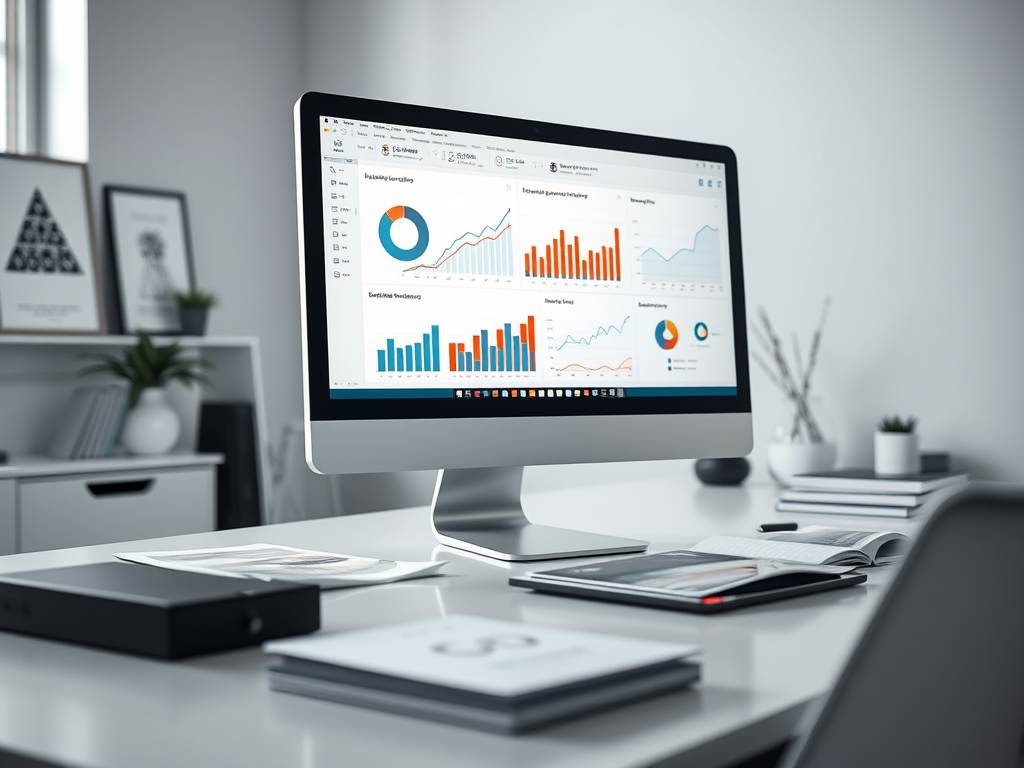In a world where technology evolves at lightning speed, digital marketing automation continues to be a linchpin for businesses striving to optimize their marketing strategies. As more companies pivot to digital-first approaches, the imperative to understand and implement the latest automation trends is clearer than ever. From artificial intelligence enhancing customer experiences to seamless integration across multiple channels, automation is reshaping the marketing landscape. The challenge now lies in not only identifying these trends but also mastering them to gain a competitive edge. As marketers, adapting to these shifts is essential not just for survival, but for thriving in a data-rich environment. In this article, we’ll delve into the pivotal trends driving the future of digital marketing automation.
The Rise of AI and Machine Learning in Marketing Automation

Artificial intelligence (AI) and machine learning are at the forefront of transforming digital marketing automation. These technologies empower marketers to analyze vast quantities of data, allowing for the extraction of meaningful insights that can shape strategies. Predictive analytics, a key component of AI, has emerged as a game-changing tool. It enables brands to anticipate customer behaviors and preferences, thus improving engagement and conversion rates. Such capabilities make decision-making faster and more informed. As these technologies become increasingly sophisticated, their potential to optimize marketing efforts continues to expand.
Personalization is no longer a niche strategy; it’s a necessity for modern marketers. AI can tailor content to individual users by analyzing past interactions and preferences. This leads to experiences that resonate on a deeper level. Consequently, brands can significantly enhance customer satisfaction and loyalty. More personalized marketing approaches will not only increase conversion rates but also foster long-term relationships. The impact of AI-driven personalization cannot be overstated in today’s crowded digital marketplace.
Integration of Omnichannel Marketing Strategies

Omnichannel marketing emerges as a vital strategy for brands aiming to provide a cohesive customer experience. This approach combines various channels—social media, email, website, and even in-store interactions—to create a unified customer journey. The goal is to ensure customers receive consistent messaging and experiences, regardless of the platform they engage with. A successful omnichannel strategy can significantly enhance brand loyalty and customer retention. Therefore, understanding the tools that facilitate this integration is imperative for marketers.
Several tools can assist in the implementation of effective omnichannel marketing strategies. These tools streamline communication, track customer interactions, and personalize experiences across platforms. Here are some popular options:
- HubSpot – An all-in-one marketing platform that provides inbound marketing capabilities.
- Salesforce Marketing Cloud – A robust tool for customer engagement and automation.
- Marksight – A platform designed for analyzing customer data across multiple channels.
- Zendesk – Excellent for integrating customer service touchpoints into marketing strategies.
By leveraging such technologies, marketers can ensure a seamless experience is delivered to their customers.
| Tool | Functionality |
|---|---|
| HubSpot | Inbound marketing, analytics, and automation. |
| Salesforce | Comprehensive customer engagement solutions. |
| Marksight | Data analytics for marketing insights. |
| Zendesk | Customer service integration and automation. |
With these powerful tools, marketers can enhance their omnichannel strategies, making communication seamless and effective for customers.
Enhanced Data Privacy Regulations Impacting Automation
As digital marketing evolves, so too does the landscape of data privacy. The introduction of regulations such as GDPR and CCPA has forced marketers to rethink their data collection and processing methods. With heightened consumer awareness about privacy issues, brands must adapt their marketing automation strategies accordingly. Emphasizing transparency and data security not only complies with regulations but also builds trust with consumers. Aligning marketing practices with these standards is crucial for long-term sustainability.
Marketers can employ several strategies to ensure compliance with data privacy regulations while still maximizing automation. Here’s a list of actionable tips:
- Regularly review data collection practices to align with regulations.
- Implement user consent mechanisms to ensure transparency.
- Educate your team on privacy laws and best practices.
- Utilize privacy-compliant marketing automation software.
The Role of Chatbots and Conversational Marketing
Chatbots are becoming an integral part of the marketing automation landscape. They offer immediate customer service and support, making interactions more efficient. With advanced AI capabilities, chatbots can understand user queries and provide tailored responses, enhancing the overall customer experience. Moreover, they can capture leads and facilitate sales processes, further integrating marketing efforts with customer service initiatives. As conversational marketing continues to grow, the potential of chatbots for automating these interactions is immense.
The benefits of employing chatbots in marketing strategies are numerous:
- 24/7 availability for customer inquiries.
- Instant responses that enhance user satisfaction.
- Data collection for better understanding customer needs.
- Integration with CRM systems for a holistic view of interactions.
The Importance of Real-time Analytics and Reporting
In today’s fast-paced marketing environment, real-time analytics are indispensable. Marketers rely on immediate data to make swift decisions that can affect campaign success. Real-time reporting allows teams to track performance metrics continuously and adjust strategies on the fly. This level of responsiveness is vital for maximizing the impact of marketing automation efforts. Adoption of real-time analytics can significantly enhance the decision-making process and overall marketing effectiveness.
Conclusion
Embracing the emerging trends in digital marketing automation is essential for staying competitive. The transformative power of AI, the importance of personalized experiences, the integration of omnichannel strategies, and the necessity of data privacy compliance are just a few critical areas to focus on. Additionally, the rise of chatbots and the necessity for real-time analytics cannot be overlooked. Marketers must prepare to adapt their strategies to align with these evolving trends for continued success in the digital landscape.
Frequently Asked Questions
- What is digital marketing automation? Digital marketing automation refers to the use of software to automate repetitive marketing tasks, allowing marketers to focus on strategy and analysis.
- How will AI impact digital marketing in the future? AI will enable more personalized marketing strategies, enhance customer targeting, and improve efficiency through predictive analytics.
- What is omnichannel marketing? Omnichannel marketing is a strategy that creates a seamless customer experience across multiple channels, including social media, email, and physical stores.
- How can companies ensure compliance with data privacy regulations? Companies should regularly review their data collection and processing practices, implement transparency, and obtain user consent where necessary.
- What are the benefits of using chatbots in marketing? Chatbots can improve customer engagement, provide instant support, and facilitate lead generation, all while operating 24/7.



